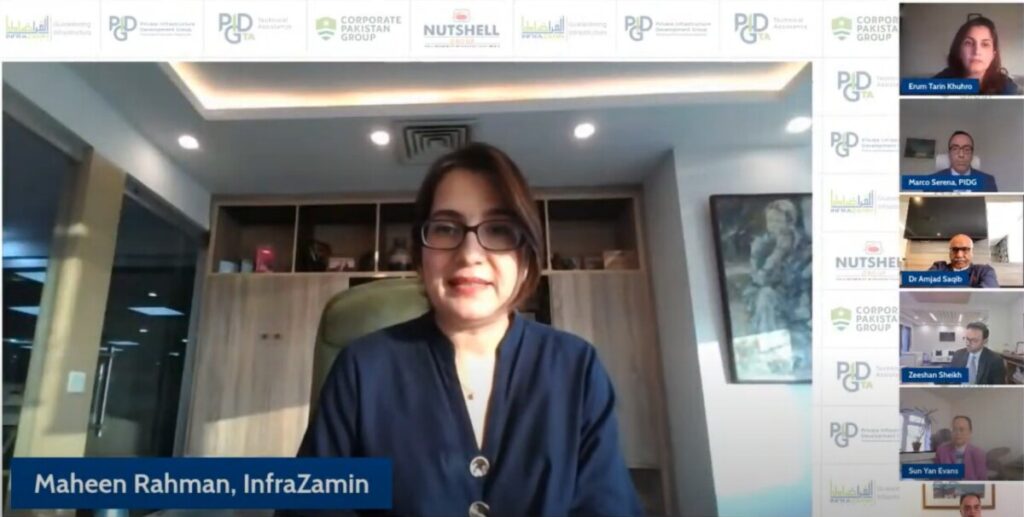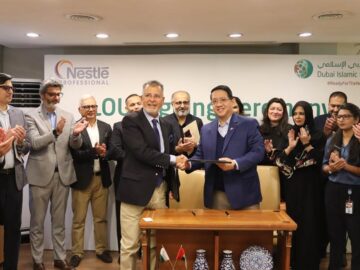
Pakistan is the 5th most vulnerable country to climate change; therefore, it is critical to build awareness on this subject and more importantly find collective solutions on how to adapt to the impact of climate change. InfraZamin held its first of a series of webinars with the objective of understanding, working with and preparing for climate change. The webinar, titled “Adapting to Climate Change: Flood Rehabilitation Financing,” focused on discussing viable solutions such as building sustainable infrastructure, managing water drainage, and water storage, and exploring rehabilitation financing options.
The webinar was co-hosted by CORPORATE PAKISTAN GROUP, in association with the Private Infrastructure Development Group and PIDG Technical Assistance, and in partnership with Nutshell Group. It brought together local and international experts from the corporate, government, agriculture sectors, NGOs, multi-lateral development, and financial institutions. The session was moderated by Maheen Rahman, Chief Executive Officer, InfraZamin Pakistan, who opened the discussion by stressing the need to address Pakistan’s vulnerabilities today to secure ourselves for the future “Pakistan is vulnerable to the effects of climate change and developing innovative solutions today to adapt to climate change events will be crucial to the country’s future. “
Erum Tarin Khuhro and Dr. Amjad Saqib contributed to the discussions to highlight the challenges and difficulties in rebuilding on the ground and emphasized the importance of involving large financing institutions in the rebuilding effort which should be substantiated with proper research and analysis.
Zafar Masud, President & CEO, of Bank of Punjab, cemented this further by saying, “Pakistan has been hit by the worst of floods this year and it is important for investment banks and financial institutions to finance rebuilding initiatives that would help to avoid future impact and mitigate the current consequences.”
International expert on coastal flood modeling and management, Sun Yan Evans, Technical Director Mott McDonalds elaborated further; “Pakistan needs decision support systems and flood resilient structures to combat climate change and mitigate its impact. Short-term and long-term strategies need to be in place combined with robust financing plans from both local and international institutions.”
Zeeshan Sheikh, Country Manager Pakistan & Afghanistan, International Finance Corporation, also elaborated that “the recent floods may be the biggest disaster for Pakistan, yet we should recognize that this is an opportunity to build back better and the IFC is committed to working alongside the private sector to find solutions.”
Marco Serena, the Sustainable Development Impact Director at PIDG, UK pointed out that it is challenging for impact investors to build in the costs and benefits of climate adaptation as much of this can be non-monetary; however, innovation will be essential in finding ways to overcome this challenge.
The productive discussion ended with a solution-oriented approach with panelists deliberating issues and convictions and then presenting the way forward. It entailed infrastructure, housing, and rehabilitation of affected populations, building sustainable infrastructure, water drainage, and water storage facilities for a stronger and climate-resilient Pakistan.










